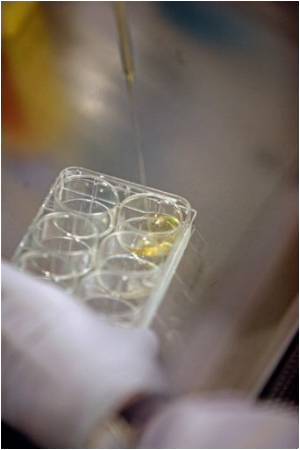
Their animal model, the zebra fish, is nearly transparent, which makes it ideal for such in vivo research. The study has important implications in theranostics of cancer and other diseases at the cellular level.
First a short laser pulse overheated the surface of the nanoparticles and evaporated a very thin volume of the surrounding medium to create small vapour bubbles that expanded and collapsed within nanoseconds; this left cells undamaged but generated a strong optical scattering signal that was bright enough to detect a single cancer cell.
A second, stronger pulse generated larger nanobubbles that exploded the target cell without damaging surrounding tissue in the zebra fish. Scattering of the laser light by the second "killer" bubble confirmed the cellular destruction.
The nanobubbles avoid the pitfalls of chemo or radiative therapy that can damage healthy tissue as well as tumours.
"It's not a particle that kills the cancer cell, but a transient and short event. We're converting light energy into mechanical energy," Lapotko said.
Advertisement
The study is published in the October print edition of the journal Biomaterials.
Advertisement


![Prostate Specific Antigen [PSA] & Prostate Cancer Diagnosis Prostate Specific Antigen [PSA] & Prostate Cancer Diagnosis](https://www.medindia.net/images/common/patientinfo/120_100/prostate-specific-antigen.jpg)










